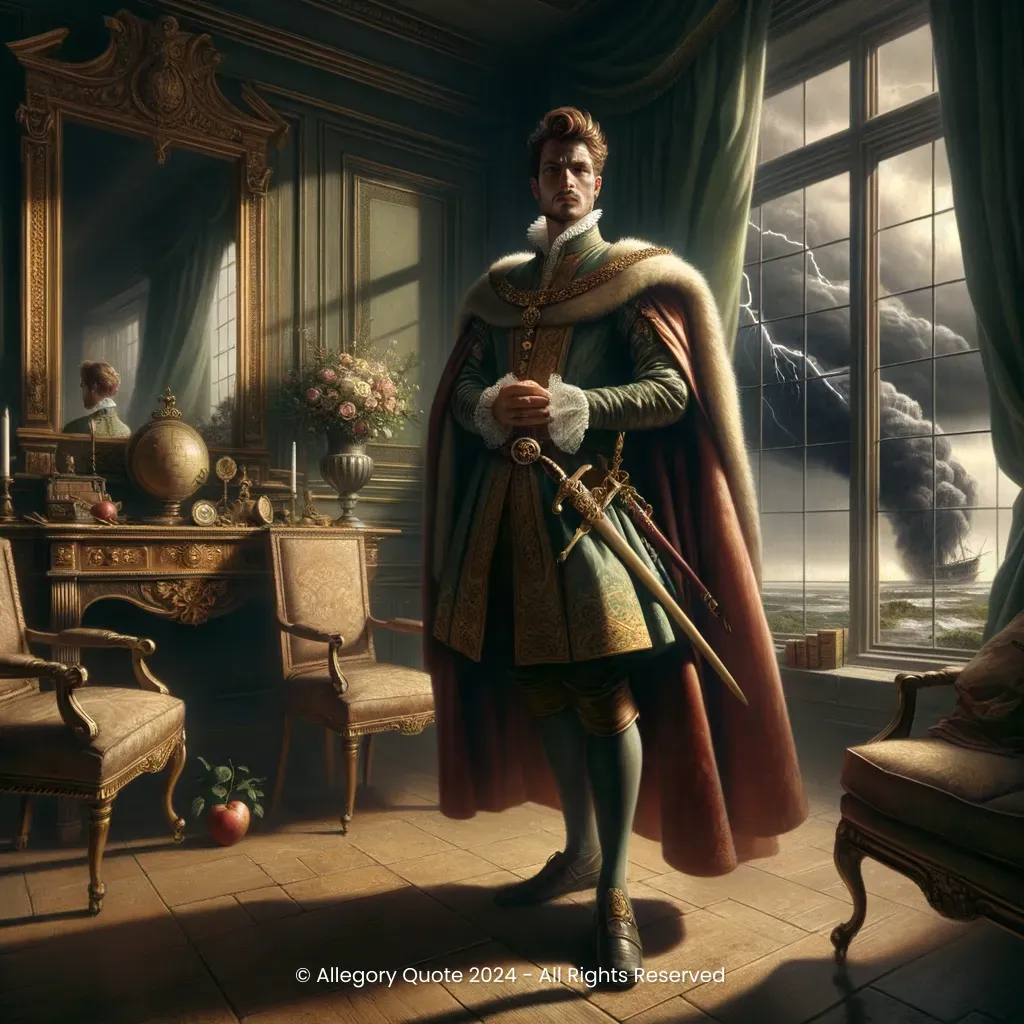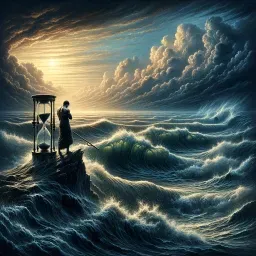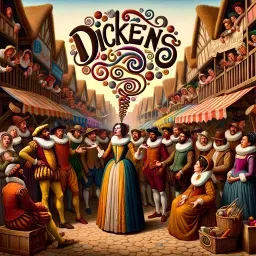”I must be cruel only to be kind;
thus bad begins, and worse remains behind“

0
0
0
0
- Meaning
- The phrase "I must be cruel only to be kind; thus bad begins, and worse remains behind" captures a profound psychological and moral complexity. Hamlet is grappling with his actions and their necessity. He believes that his harsh actions, though seemingly cruel, are ultimately meant to lead to a greater good. The second part of the phrase suggests that the current dire situation will only escalate, reinforcing the tragic inevitability that often characterizes Shakespeare's works. Essentially, Hamlet is justifying his actions as a painful but necessary step to resolve a larger issue, highlighting the difficult choices one must occasionally make.
- Allegory
- The princely figure symbolizes Hamlet, embodying the central conflict of the quote. The dimly lit room and shadows denote the heavy burden of his moral considerations. The dagger in his hand represents the necessary cruelty he believes he must wield, while the rose symbolizes his intention for kindness and the potential good he aims to achieve. The storm outside the window is a visual representation of the inevitable worsening of circumstances. The opulence mixed with decay in the room underscores the tragic duality of his actions and the ultimately destructive path that lies ahead. This visual narrative encapsulates the essence of the provided phrase, illustrating the complex interplay between harsh necessity and intended benevolence.
- Applicability
- This phrase can be applied in situations where difficult or harsh actions are necessary for a positive outcome. For instance, a leader might have to make tough decisions that are unpopular in the short term but beneficial in the long run. Similarly, in personal relationships, setting firm boundaries or delivering hard truths can be painful but ultimately lead to healthier dynamics. It underscores the idea that sometimes, short-term pain is necessary for long-term gain.
- Impact
- The impact of this phrase extends to various facets of culture, including literature, psychology, and even political discourse. It's often cited to underline the necessity of harsh measures for a greater good. In literature, it has inspired numerous characters' arcs and has become a touchstone for themes of moral ambiguity. In everyday language, it is invoked to justify tough love or difficult decisions.
- Historical Context
- The phrase originates from the late 16th to early 17th century, a period rich in political intrigue and personal vendettas. "Hamlet" was written around 1600, a time when the concepts of duty, revenge, and moral dilemmas were particularly poignant in literature and society. This historical context is reflected in the phrase's exploration of the difficult balance between cruelty and kindness, and the anticipation of escalating troubles ahead.
- Criticisms
- One potential controversy is the justification of cruelty under the guise of kindness. Critics argue that this sort of rationalization can be dangerous, allowing individuals to inflict harm while believing they are acting morally. This duality can be misinterpreted or abused to excuse malevolent actions, making it essential to scrutinize the context and intentions behind invoking the phrase.
- Variations
- There are various interpretations of this phrase across different cultures. For instance, in some Eastern philosophies, the notion of harsh actions leading to beneficial outcomes can be tied to the concept of tough love or disciplined compassion. Different societies might interpret the balance between cruelty and kindness in diverse ways, depending on their cultural values and norms around leadership, justice, and morality.
-

The empty vessel makes the loudest sound.
-

I am constant as the northern star.
-

I must be cruel, only to be kind.
-

Come what come may, time and the hour runs through the roughest day.
-

What light through yonder window breaks?
-

Some Cupid kills with arrows, some with traps.
-

Rich gifts wax poor when givers prove unkind.
-

Journeys end in lovers meeting.
-

There is a tide in the affairs of men, which, taken at the flood, leads on to fortune.
-

I cannot tell what the dickens his name is.
No Comments